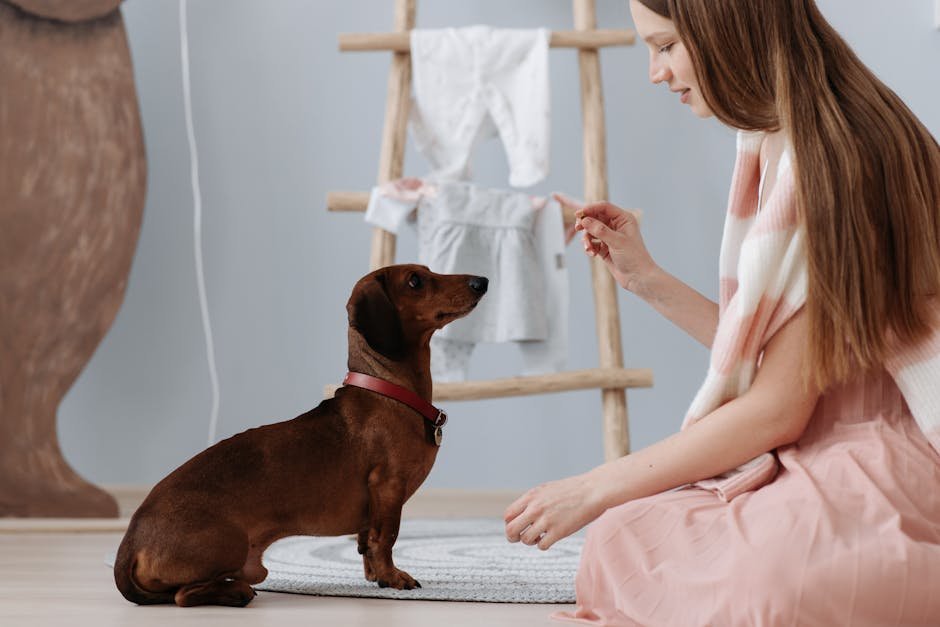Welcoming a new member into the family is a monumental decision. For newlyweds contemplating parenthood, the journey can be both exhilarating and daunting. While many envision this transition with the arrival of a baby, starting with a furry companion like a dog can be an invaluable first step. Not only do dogs bring joy and companionship, but they also teach lessons about responsibility, patience, and love. Let’s explore why introducing a dog into your home can be the perfect prelude to parenthood.
Building a Routine Together

Dogs thrive on routine, much like young children. By welcoming a dog into your home, newlyweds can learn the art of establishing and maintaining a daily schedule. From morning walks to feeding times, these routines demand coordination, fostering teamwork between partners. This shared responsibility mimics the structured schedules required in parenting. Moreover, establishing a routine with a dog helps couples to practice consistency, which is essential when raising children. The process of syncing daily activities can also strengthen the bond between partners, as they work together to make sure their furry friend’s needs are met.
Practicing Patience and Understanding

Dogs, like humans, have their quirks and moments of mischief. Adapting to these behaviors requires patience, a virtue that is equally crucial in parenting. Whether you’re dealing with a puppy’s teething phase or an older dog’s stubborn habits, these challenges teach couples to navigate misunderstandings with empathy. Learning to communicate effectively with a dog can also improve interpersonal communication, setting a foundation for future parenting. Just as parents must understand a child’s needs, dog owners must interpret subtle cues from their pets.
Enhancing Emotional Bonding
A dog’s unconditional love can deepen the emotional connection between partners. Sharing the joys and challenges of pet ownership provides opportunities to celebrate small victories and support each other through setbacks. For instance, teaching your dog a new trick or overcoming a behavioral hurdle is a shared achievement that can bring couples closer. These experiences foster trust and collaboration, vital components of a successful partnership. The joy of coming home to a wagging tail can also uplift spirits, reminding couples of the happiness that companionship can bring.
Fostering Responsibility and Commitment

Owning a dog is a long-term commitment, much like raising a child. It demands dedication, time, and financial resources. By taking on the responsibility of a pet, couples can evaluate their readiness for future commitments. This experience provides insights into budgeting for pet-related expenses, which parallels the financial planning required for children. It also encourages couples to discuss and align their priorities, ensuring that they are on the same page regarding future decisions. This shared responsibility can be a litmus test for the challenges and joys of parenthood.
Providing Opportunities for Socialization
Dogs are natural icebreakers, facilitating social interactions in various settings, from parks to pet events. This can be particularly beneficial for newlyweds who have relocated or are seeking to expand their social circle. Engaging with other dog owners provides insights into diverse perspectives and lifestyles, enriching the couple’s social experiences. These interactions can also be a precursor to the social dynamics encountered in parenting, where playdates and school events become central to family life. Socializing with other dog enthusiasts can also offer valuable advice and support, enhancing the couple’s confidence in their parenting journey.
Boosting Physical Activity
Dogs, especially active breeds, encourage their owners to engage in regular physical activity. This not only promotes a healthy lifestyle but also prepares couples for the physical demands of parenting. Whether it’s a brisk walk in the park or a game of fetch, these activities improve cardiovascular health and overall well-being. The habit of staying active can be instrumental when parenting, as children require energetic and engaged caregivers. Furthermore, shared physical activities with a dog can become cherished rituals, offering relaxation and bonding opportunities for couples.
Understanding the Importance of Consistency

Training a dog requires consistent reinforcement and clear communication. These skills are equally vital in parenting, where children thrive on consistency and clear guidelines. By setting boundaries and rewarding positive behavior, couples learn the significance of maintaining consistency in their interactions. This experience teaches partners to align their approaches, ensuring that they present a united front in future parenting scenarios. The discipline involved in dog training can also translate into effective parenting strategies, where consistency is key to nurturing responsible and well-adjusted children.
Experiencing Unconditional Love and Joy

Perhaps the most rewarding aspect of dog ownership is the unconditional love and joy they bring into a home. This mirrors the profound love experienced in parenthood, where simple moments can bring immense happiness. The bond shared with a dog can be a testament to the joys of companionship and nurturing, setting the stage for the emotional richness of raising a child. The laughter and warmth a dog brings can also alleviate stress, creating a harmonious home environment. This emotional fulfillment can be a compelling reason for newlyweds to consider a dog as a precursor to parenthood.






